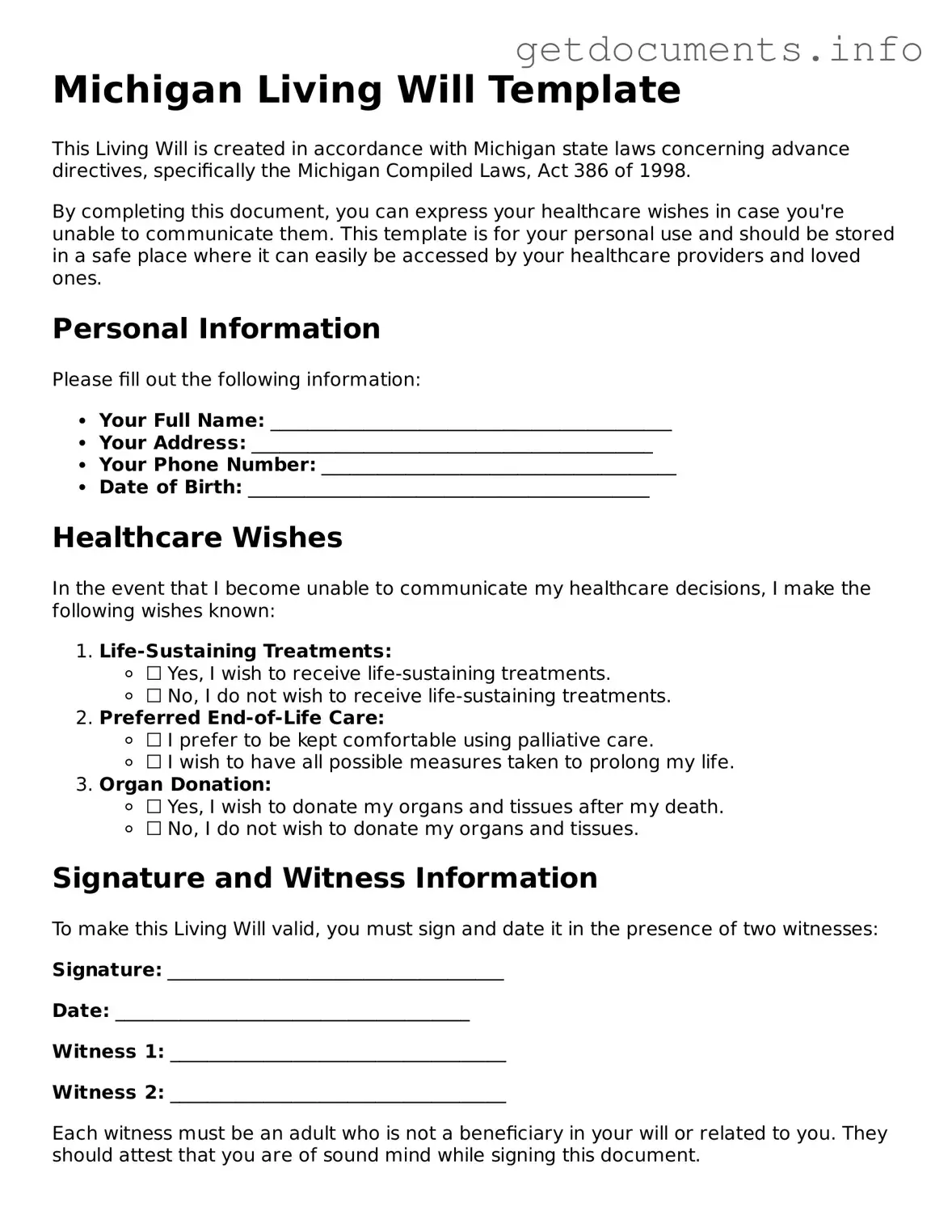Free Living Will Template for Michigan
A Michigan Living Will form is a legal document that allows individuals to express their wishes regarding medical treatment in the event they become unable to communicate those preferences themselves. This form plays a crucial role in ensuring that one's healthcare decisions align with personal values and beliefs. To take control of your future healthcare decisions, consider filling out the Michigan Living Will form by clicking the button below.
Access Living Will Editor

Free Living Will Template for Michigan
Access Living Will Editor
Got places to be? Complete the form fast
Fill out Living Will online and avoid printing or scanning.
Access Living Will Editor
or
⇩ PDF File
